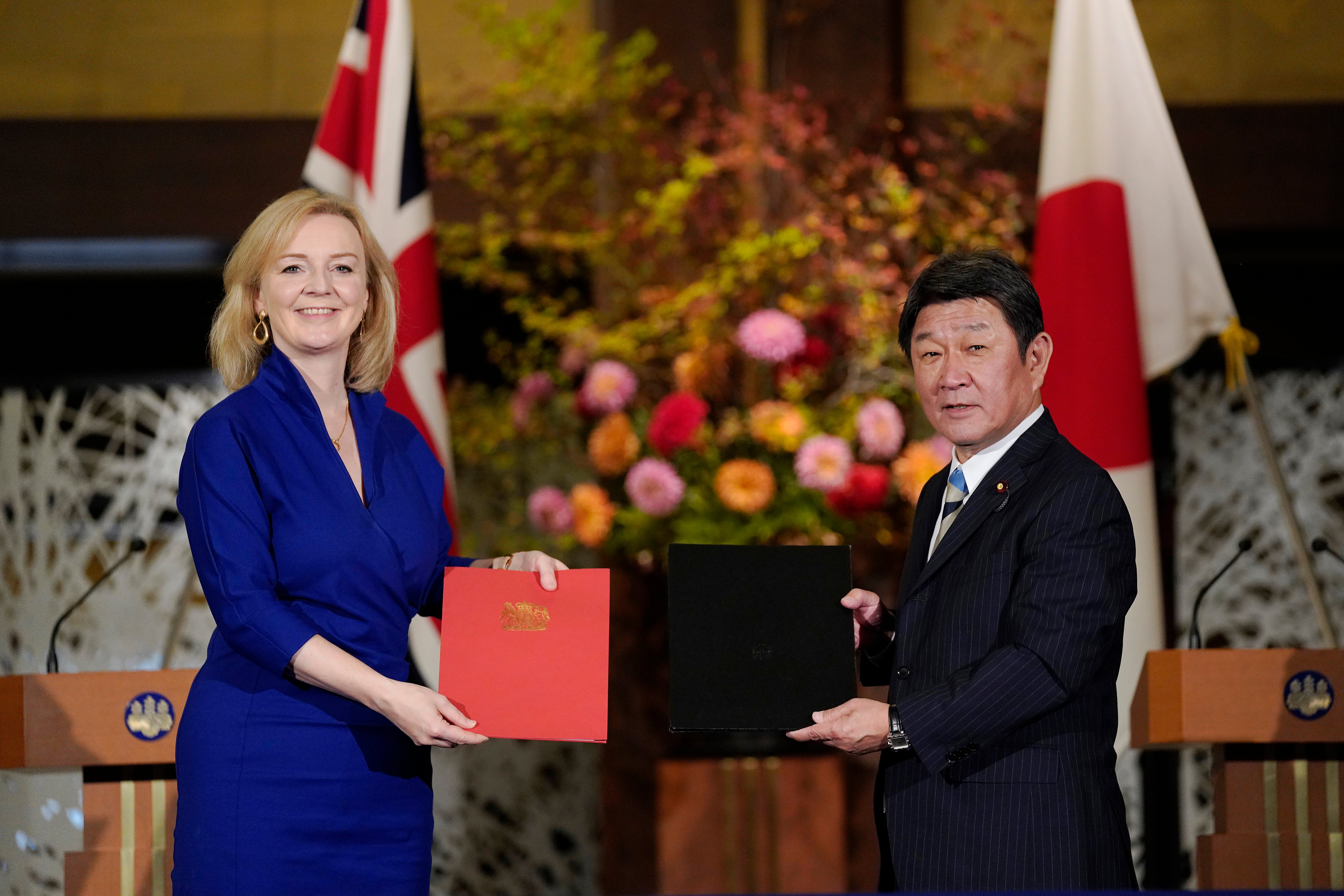Japan, Britain sign free trade deal for post-Brexit era
Japan and Britain have signed a free trade deal in the first such major post-Brexit deal

Your support helps us to tell the story
From reproductive rights to climate change to Big Tech, The Independent is on the ground when the story is developing. Whether it's investigating the financials of Elon Musk's pro-Trump PAC or producing our latest documentary, 'The A Word', which shines a light on the American women fighting for reproductive rights, we know how important it is to parse out the facts from the messaging.
At such a critical moment in US history, we need reporters on the ground. Your donation allows us to keep sending journalists to speak to both sides of the story.
The Independent is trusted by Americans across the entire political spectrum. And unlike many other quality news outlets, we choose not to lock Americans out of our reporting and analysis with paywalls. We believe quality journalism should be available to everyone, paid for by those who can afford it.
Your support makes all the difference.Japan and Britain signed a bilateral free trade deal Friday in the the first such major post-Brexit deal, reducing tariffs on Yorkshire lamb sold in Japan, as well as auto parts for Japan’s Nissan plant
“How fitting it is to be in the Land of the Rising Sun to welcome in the dawn of a new era of free trade,” British International Trade Secretary Liz Truss told reporters at a signing ceremony in Tokyo.
Appearing with Japanese Foreign Minister Toshimitsu Motegi, Truss called the agreement a “landmark” as the first major trade deal for Britain since it returned as an independent trading nation.
The deal, estimated to boost British trade with Japan by 15 billion pounds ($19.5 billion), will also make it easier for British companies to operate in Japan.
Financial services make up Britain’s biggest export to Japan, now at 28%. English sparkling wine, made-in-Britain coats and shoes, Stilton cheese, as well as pork and biscuits from Britain, will become cheaper in Japan.
Motegi said the bilateral deal ensures continuity from the preceding European agreement, while adding new areas for cooperation such as e-commerce and financial services.
Japan's existing free trade agreement with the European Union includes Britain only until the end of this year, as it exits the EU.
Parliamentary approval is needed in both nations before the agreement takes effect from the beginning of next year. It’s expected in Japan next week, as the ruling party controls both houses of parliament.
Japan already exports about 1.5 trillion yen ($14 billion) of goods to Britain, mostly autos, auto parts and other machinery, while importing nearly 1 trillion yen ($9.5 billion) worth from Britain, including pharmaceuticals, medical products and cars, according to the Japanese Foreign Ministry.
Tariffs on Japanese autos are removed gradually and won’t become zero until 2026, the same as the terms of the deal Japan has with the EU.
Japan has repeatedly expressed concern about Japanese businesses in Britain, which include Hitachi, with plants making railway cars for East Coast trains, and Nissan Motor Co., employing several thousand workers at its Sunderland auto plant.
Motegi went to Britain in August, his first overseas trip amid the coronavirus pandemic, during which he stressed the importance for reaching a trade deal quickly.
___
Yuri Kageyama is on Twitter https://twitter.com/yurikageyama